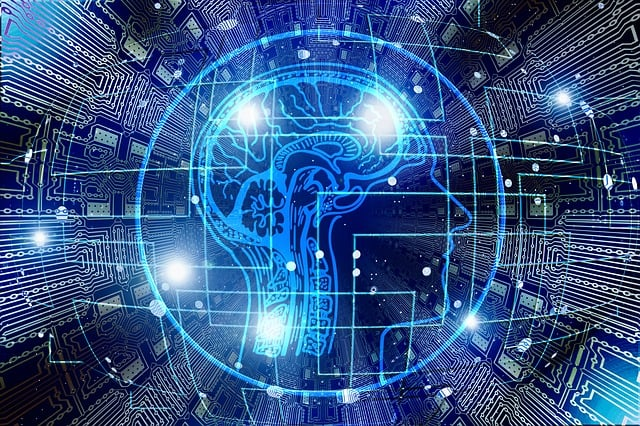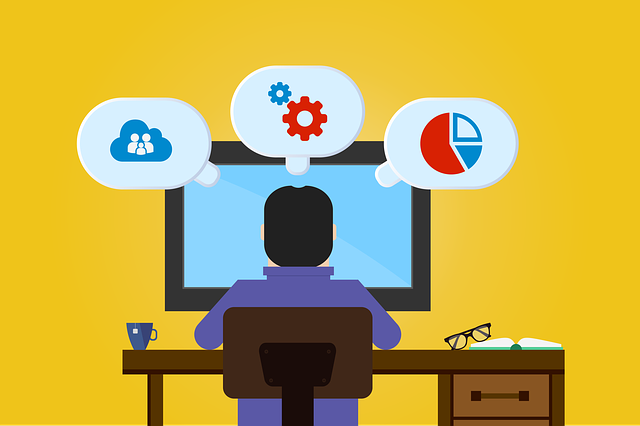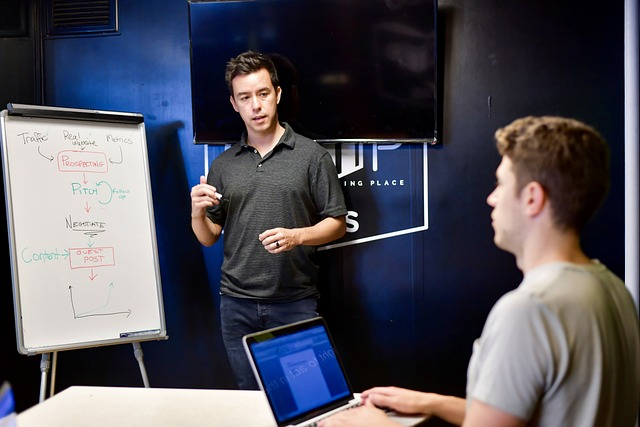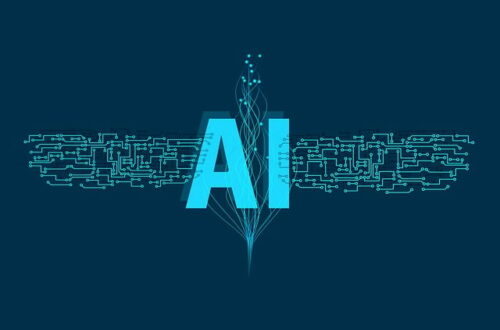In the ever-evolving world of programming, there’s a fascinating question that’s been popping up at coffee shops and coder hangouts: Can AI steal the show and ultimately replace programmers?
It’s like the ultimate tech showdown.
AI’s advancements in machine learning and automation have brought this debate to the forefront, promising both dazzling efficiencies and a bit of drama with concerns about job security and the future of the coding profession.
So, put on your virtual boxing gloves as we dive into the ring where it’s AI vs. Programmers, and explore the potential perks and pitfalls of this high-tech battle.
The Role of AI in Technology
By understanding AI’s central role in tech, we can better grasp its potential to impact programming and the broader implications for the industry.

Artificial Intelligence (AI) encompasses the creation of computer systems and software capable of accomplishing tasks that traditionally rely on human intelligence, such as problem-solving, learning from experience, comprehending natural language, identifying patterns, and rendering decisions.
AI systems are engineered to imitate cognitive functions, enabling them to handle and scrutinise extensive datasets, resolve intricate issues, and adjust to novel circumstances.
Examples of AI in Modern Technology
AI plays a pivotal role in modern technology across various domains.
Some notable examples include:
- Smart Assistants: AI-driven virtual assistants such as Siri, Alexa, and Google Assistant utilise artificial intelligence to comprehend and act upon voice instructions, offer information, set reminders, and manage smart home devices.
- Recommendation Systems: AI algorithms power recommendation engines on platforms like Netflix and Amazon, suggesting content or products based on user preferences and behaviour.
- Autonomous Vehicles: Self-driving cars use AI for navigation, object recognition, and decision-making, with the potential to revolutionise transportation.
- Healthcare: AI assists in medical image analysis, diagnosing diseases, and drug discovery, enhancing the accuracy and efficiency of healthcare systems.
- Chatbots: AI-driven chatbots provide customer support, answer queries, and automate interactions on websites and messaging platforms.
- Finance: AI is used in fraud detection, algorithmic trading, and personalised financial advice to optimise investment strategies.
- Natural Language Processing (NLP): NLP models like GPT-3 can understand and generate human-like text, enabling chatbots, language translation, and content generation.
- Computer Vision: AI is used for facial recognition, object detection, and image analysis in applications like security systems and augmented reality.
- E-commerce: AI-driven pricing, inventory management, and customer segmentation enhance the efficiency of online retailers.
- Gaming: AI is employed in video games to create dynamic and challenging non-player characters (NPCs) and adapt gameplay based on the player’s actions.
AI continues to advance and permeate various sectors, offering solutions that improve efficiency, productivity, and the overall user experience in modern technology.
Also Read: Discover The 5 Best Free AI Software Tools Available Today
AI and Programming
AI and programming are intertwined, with AI serving as a powerful tool for programmers.
AI can automate code generation, assist in debugging, optimise code, and predict potential issues.
It’s also used in writing and documenting code, recommending best practices, and automating testing.
AI enhances productivity and software quality, making it an invaluable asset in the world of programming.

The Work of Programmers
Programmers are the architects of the digital world, responsible for designing, writing, and maintaining computer programs and software. They play a crucial role in the tech industry by translating ideas into functional software.
They design, write, and maintain code for applications, websites, and systems. Programmers are problem solvers, algorithm creators, and quality assurance experts, ensuring that software works as intended. They adapt to emerging technologies and collaborate with teams to turn concepts into practical solutions, driving innovation in the digital world.
Programming skills and expertise encompass a wide range of competencies, from proficiency in coding languages like Python or Java to problem-solving, algorithm design, and debugging. Programmers must also understand data structures, databases, and software development methodologies. Additionally, expertise in specific domains, such as web development, mobile app development, or machine learning, is valuable. Continuous learning and adaptability are crucial, as technology evolves rapidly, demanding programmers to stay up-to-date and acquire new skills to remain effective in their roles.
Programming began with low-level machine code and assembly languages, gradually advancing to high-level languages like C, C++, and Java. The rise of scripting languages, such as Python and JavaScript, made programming more accessible. Modern programming now involves web development, mobile apps, and artificial intelligence, reflecting the ever-changing technology landscape. The shift towards abstraction and visual programming environments further democratizes coding, making it more user-friendly and efficient.
Also Read: Diving Into The Different Levels Of The Internet
The Potential of AI in Programming
AI holds immense potential to revolutionise the field of programming. It can automate coding, detect and fix bugs, optimise software, and enhance developer productivity.
In the realm of programming, AI is being increasingly used to generate code. It can create code snippets, modules, or even entire programs based on high-level descriptions or user requirements.
Code auto generation is another process, where AI and programming tools automatically generate sections of code or even entire programs. It’s a time-saving technique that assists programmers by reducing manual coding efforts. AI-driven auto generation can help create repetitive or boilerplate code, enhancing productivity and reducing the likelihood of errors.

AI-powered tools can also include code generators, debugging aids, code optimisation utilities, and more. They leverage AI to automate, improve, or accelerate different aspects of the coding process, enhancing developer efficiency and software quality. AI-powered tools are becoming increasingly essential in modern programming, making the development workflow smoother and more productive.
The Pros and Cons
Pros:
- Efficiency: AI accelerates the coding process, reducing development time.
- Error Reduction: AI-generated code is less prone to human errors.
- Productivity: Programmers can focus on higher-level tasks, fostering creativity.
- Consistency: AI ensures code consistency, adhering to best practices.
- Accessibility: AI lowers barriers, allowing non-programmers to create software.
Cons:
- Quality Control: AI-generated code may lack the same level of human understanding, potentially leading to issues.
- Dependency: Overreliance on AI may hinder programmer skill development.
- Complexity: AI-driven code can be harder to troubleshoot and maintain.
- Ethical Concerns: Ensuring ethical AI usage in code generation is crucial to prevent biases.
- Job Displacement: Concerns exist about the potential impact on programmer employment opportunities.
Also Read: Is Gaming A Sport? Debunking The Myths And Defining Competitive Gaming
AI’s Impact on Traditional Programming Jobs
AI’s impact on traditional programming jobs is characterised by automation, which can streamline coding processes, boost productivity, and create new job opportunities in AI-related fields. However, it also raises concerns about potential job displacement in certain programming roles. To navigate this shifting landscape, individuals must adapt and acquire new skills, embracing roles that complement, rather than compete with, automation technologies.
Programmers will also need to adapt by learning new skills, staying updated with emerging technologies, and gaining expertise in AI-related fields. This enables them to remain competitive and relevant in the changing job landscape, opening up opportunities to work alongside AI systems and shape the future of programming.
AI’s impact on traditional programming jobs is likely to lead to a collaborative future. Programmers and AI systems will work in tandem, with programmers overseeing AI tools and focusing on more complex, creative tasks. This collaboration has the potential to improve efficiency and innovation in software development, offering new opportunities for programmers to harness AI as a powerful ally in their work, rather than a replacement for their roles.
Also Read: Is 300 Mbps Good For Gaming? Evaluating Internet Speed For Gamers
The Human Element in Programming and the Limitations of AI
While AI offers powerful tools and automation, it’s essential to recognise that human programmers bring unique insights, ethical judgment, and adaptability to the field.

So, despite its advantages, AI has limitations related to creativity, contextual understanding, and ethical judgment.
Creativity and problem-solving are integral aspects of programming that remain firmly within the human domain. While AI can automate routine tasks and optimise existing solutions, it often lacks the capacity for innovative thinking and the ability to address novel challenges. Human programmers bring creativity to designing unique solutions and problem-solving skills to tackle complex, real-world issues, making them indispensable in software development.
Ethical and critical decision-making is a distinctly human trait, and while AI can process vast amounts of data and generate code, it cannot often make complex ethical judgments. Human programmers are responsible for ensuring that technology is used responsibly and ethically, making crucial decisions regarding issues like privacy, bias, and security in software development. Their role in upholding ethical standards and critical thinking in technology is irreplaceable.
Programmers need a personal touch too, so that they can interact with clients, stakeholders, and team members to gather requirements, offer solutions, and work together to create software. Human programmers are not only proficient in these interpersonal skills but also adapt to the dynamic nature of projects, which often involves changing requirements and feedback. AI lacks the emotional intelligence and adaptability required for seamless communication and collaboration in the programming context.
AI as a Tool for Programmers
AI serves as a tool to augment programmer abilities. It complements their skills, automating routine tasks, offering insights, and enabling faster, more efficient coding. This augmentation allows programmers to focus on higher-level tasks, such as problem-solving and creativity, ultimately enhancing their productivity and the quality of software development.
AI-enhanced development refers to the practice of integrating AI tools and technologies into the software engineering process. These tools can streamline coding, improve testing and debugging, and enhance the overall development workflow. AI’s role in development is to augment programmer capabilities, making the process more efficient and productive while maintaining the human element in decision-making and creative aspects of programming.
The future holds exciting prospects for collaboration between programmers and AI, and in these scenarios, AI will act as a partner, assisting programmers in code generation, optimisation, and testing. Programmers will focus on higher-level tasks like design, creativity, and ethical considerations. This partnership is expected to result in more efficient, innovative, and ethically sound software development, reflecting the best of both human and AI capabilities.
Also Read: How to Quit Social Media and Reclaim Your Time: Effective Strategies




